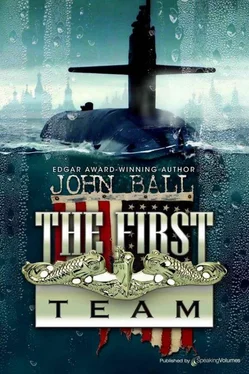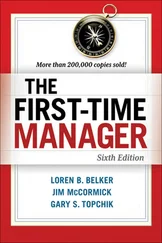Джон Болл - The First Team
Здесь есть возможность читать онлайн «Джон Болл - The First Team» весь текст электронной книги совершенно бесплатно (целиком полную версию без сокращений). В некоторых случаях можно слушать аудио, скачать через торрент в формате fb2 и присутствует краткое содержание. Год выпуска: 2013, Жанр: Триллер, на английском языке. Описание произведения, (предисловие) а так же отзывы посетителей доступны на портале библиотеки ЛибКат.
- Название:The First Team
- Автор:
- Жанр:
- Год:2013
- ISBN:нет данных
- Рейтинг книги:5 / 5. Голосов: 1
-
Избранное:Добавить в избранное
- Отзывы:
-
Ваша оценка:
- 100
- 1
- 2
- 3
- 4
- 5
The First Team: краткое содержание, описание и аннотация
Предлагаем к чтению аннотацию, описание, краткое содержание или предисловие (зависит от того, что написал сам автор книги «The First Team»). Если вы не нашли необходимую информацию о книге — напишите в комментариях, мы постараемся отыскать её.
Student protesters are being slaughtered in the Midwest.
The Jewish pogroms have begun.
You are now living in Soviet — occupied America!
One nuclear submarine and a handful of determined patriots against the combined might of Russia and Soviet-occupied America… The Most Explosive and Gripping “What If” Novel of Our Time!
First published January 1971
The First Team — читать онлайн бесплатно полную книгу (весь текст) целиком
Ниже представлен текст книги, разбитый по страницам. Система сохранения места последней прочитанной страницы, позволяет с удобством читать онлайн бесплатно книгу «The First Team», без необходимости каждый раз заново искать на чём Вы остановились. Поставьте закладку, и сможете в любой момент перейти на страницу, на которой закончили чтение.
Интервал:
Закладка:
The manager of the troupe had warned him not to hurt himself; then with his conscience properly salved he waited and watched. It took three days for Walter Wagner to work his way up to the top, but he did not falter at any point along the way. Each time he knew that he was ready he went a little higher and tried it again; when he had mastered that step he moved up once more.
Three years after that the Great Cordova had become one of the standard and dependable attractions throughout much of the free world. He had added many features to his act to give it more color; he dove with lighted torches in either hand at night, he dove in a cape in the daytime which he discarded halfway down in his plunge. He had lighted rings installed on the side of his rigging and timed his revolving falls to pass through them with apparently almost no space to spare.
He had also discovered a new talent — a remarkable ear for languages. He learned with great speed and almost flawless accent. He found it fascinating, and delighted in learning the reactions of people around him by listening to their scraps of conversation.
One day he heard something that could have been meaningless, but on the other hand, perhaps not. He had stopped in at the American consulate that same afternoon where he was listened to with care. He left with the feeling that he might have made a fool of himself. Subsequent events established the fact that his call had been of some importance.
Two weeks after that he had visitors. The Central Intelligence Agency had done a fast and efficient job of checking his background, and the possibility that the information he had supplied had been deliberately planted had been considered and discarded. The visitors talked to him a little and thanked him for his cooperation. When they had done their homework a little more thoroughly they came back, this time with a proposition. They were well aware that a circus performer could travel almost anywhere that his bookings took him without arousing suspicion, and few people ever saw or took note of the face of a high diver.
He had handled relatively minor matters after that for some time, the Agency arranging bookings for him as it became necessary. Then a big one had turned up and he had been assigned the job. The problem at hand concerned the United States Sixth Fleet in the Mediterranean. Before that one was over he had had a fight to the finish in a cul-de-sac in Port Said and had left a dead man behind him who would be sorely missed by an unfriendly foreign government. It had also brought him to the attention of the then commander of the Sixth Fleet, Vice-Admiral Barney Haymarket.
The fertile brain that he had displayed in high school had developed additional resourcefulness: at his request the Agency had located the high diver whom he had replaced in Atlantic City. Usually it was Walter Wagner who dove, but from time to time his invisible partner became the Great Cordova and thereby provided him with an unquestioned alibi. That had worked for almost two years before someone had finally stumbled onto the stunt. After that there had been other devices, but the cover had been exceptionally well maintained so that not more than a handful of men in Europe and Africa were aware that the Great Cordova was one of the CIA’s most reliable operators. Since it had been a suspicious British agent who had unmasked the two-diver gambit, and since he had kept his discovery strictly within the home team, certain hostile forces had remained unenlightened despite the fact that the fearsome Colonel Rostovitch had devoted himself for weeks to trying to penetrate the identity of the man who had outwitted him in a particularly critical operation. He had been told only that his enemy was an Israeli agent, which was of no help to him because there were too many Jews and as it happened Walter Wagner was not one of them.
Knowing all of this, and in addition the highly restricted details of many other operations in which the Great Cordova had been concerned, Admiral Haymarket had tapped him very early in the game as one of the men he most wanted. From the outset Wagner had proved his value and the admiral had the utmost confidence in him. Therefore when the word reached him that Wagner had some ideas concerning Low Blow, the admiral was more than ready to hear them. All members of the First Team had access to him at all times, and when they came, he listened.
Wagner sat down in the admiral’s office and asked, “How much have we got in photo coverage of the area where the Magsaysay is docked?”
“Plenty,” the admiral answered. “We had this one cooked up quite a while ago and we did all that we could to prepare for it.”
“In that case, I’d like to see the best detail shots you have of the immediate dock area, the sheds, and the access routes in particular. I might have an alternate idea that would spare the crane operator. We can’t let Ted sacrifice himself, obviously, or anyone else if we can help it. I think that maybe we can.”
They spent the next hour together going over the photographs that the admiral had assembled. They revealed every detail, even to the distances between certain of the buildings and the protective concrete-filled steel posts that had been installed to safeguard their corners where roadways passed by. After satisfying himself that it was still feasible, Wagner unveiled his plan; shoulder to shoulder with the admiral he went over certain of the photographs once more and sketched out an overlay.
“I think that it might work,” the admiral said when they were through. For him that was a strong endorsement.
“Then in that case,” Wagner said, “I have a small request to make of you.”
“You want to handle it.”
“That’s right, and I want to go into the field because I’ll have to be on the spot to pull it off. Ted Pappas will hate me for this, but I have the necessary experience and he doesn’t — not in this area. And he can be too easily identified.”
The admiral noted again the remarkable physique of the man beside him. “You aren’t exactly invisible yourself,” he commented.
“I’ve dealt with that before,” Wagner answered dryly. “I’m your best bet and you know it.”
The admiral could not deny that. “All right, Walt, it’s yours. Frame up the whole thing, then let me see it. By the way, can you handle the screw problem? That’s the real stinker, you know.”
“I think so,” Wagner said.
10
“I wish a report,” Zalinsky said, “on your speaking with Senator Fitzhugh. You were successful?”
“I was successful,” Hewlitt answered.
“He now has the understanding which was wished?”
“He does.” He did not elaborate.
Zalinsky leaned back a little and surveyed Hewlitt with slightly closed eyes. “In what style did he behave?” he asked.
“On the whole, the senator took it very well; he knows how to control himself. It was a blow, of course, because he apparently had thought very highly of your premier.”
“Aha, so now we are becoming clever.” Zalinsky came up in his chair and leaned forward once more. “You are making the propaganda to me.”
Hewlitt shook his head. “I stated a fact,” he said, “and I answered your question. The senator was disillusioned.”
“I do not know this word.”
“It means that his eyes were opened, like waking up from a dream. Something he had believed in was shown to be no longer true.”
Zalinsky worked his lips. “This I can accept,” he said. “Is it now that you think he will go home?”
“I doubt it,” Hewlitt answered him. “As far as he is concerned he is still a United States senator and on the job.”
“Why not you told him also that is not true?”
“I didn’t tell him that for two reasons. First, it was none of my business. Secondly, I don’t believe it myself.”
Читать дальшеИнтервал:
Закладка:
Похожие книги на «The First Team»
Представляем Вашему вниманию похожие книги на «The First Team» списком для выбора. Мы отобрали схожую по названию и смыслу литературу в надежде предоставить читателям больше вариантов отыскать новые, интересные, ещё непрочитанные произведения.
Обсуждение, отзывы о книге «The First Team» и просто собственные мнения читателей. Оставьте ваши комментарии, напишите, что Вы думаете о произведении, его смысле или главных героях. Укажите что конкретно понравилось, а что нет, и почему Вы так считаете.












